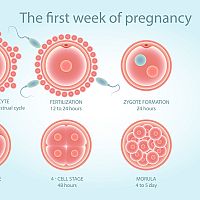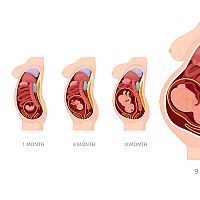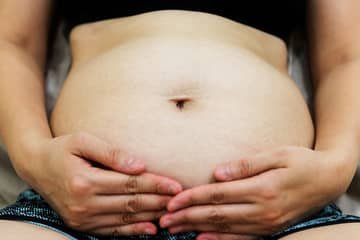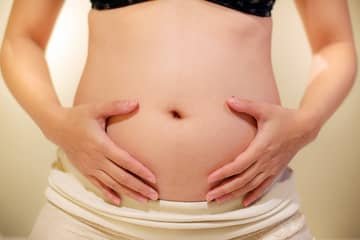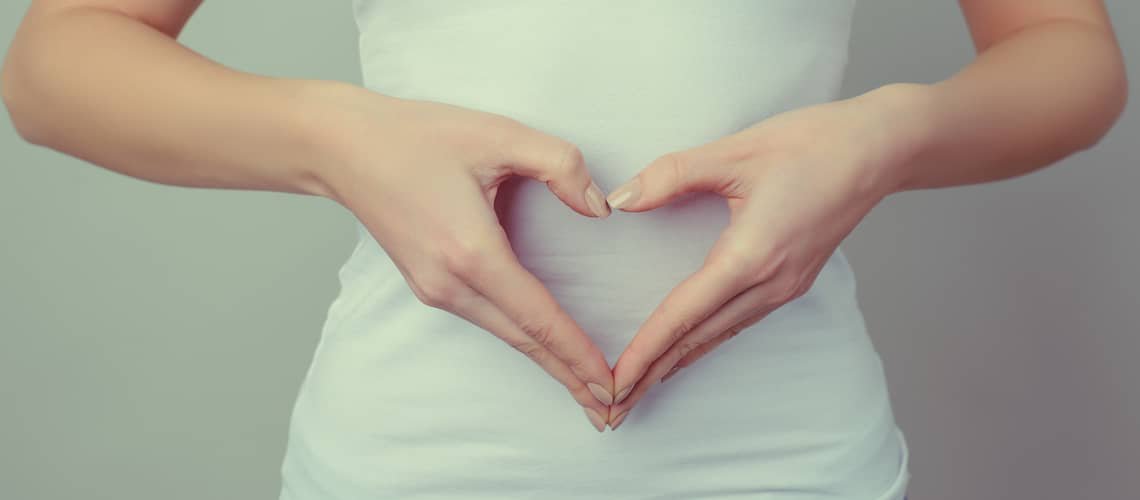
1st week of pregnancy – symptoms in the first week
Partners whose goal is to conceive a baby (planned pregnancy) eagerly await the moment when it can be confirmed with certainty that the baby is on the way. However, the first week of pregnancy is, in the very concept of pregnancy, a kind of preliminary preparation of the female body for the successful fertilization of the egg by the male sperm. At the same time, this means that technically the woman is not "pregnant" yet. Despite the fact that it may sound strange, the first week is very important for a successful pregnancy of the expectant mother. It is very important for future parents, especially a woman, to understand what the first week of pregnancy basically means. Thanks to this, father and mother can be clear from which day the pregnancy is counted. Does a woman have pain in the 1st week of pregnancy? What are the symptoms in the 1st week of pregnancy? Should a woman in the 1st week of pregnancy undergo an ultrasound?
A pregnant woman is waiting for 40 weeks, i.e. a long journey of 270 to 280 days on average, during which many changes will happen in her life, joys will appear, but also worries, but at the end of this journey there will be a longed for and beloved baby in the arms of the parents. The term itself, the 1st week of pregnancy, is relatively misleading because the woman is not yet pregnant during this period. However, as a result of establishing a suitable methodology for determining the course of pregnancy, it is necessary to determine the specific day when the pregnancy began during the calculation. What happens in a woman's body during this period?
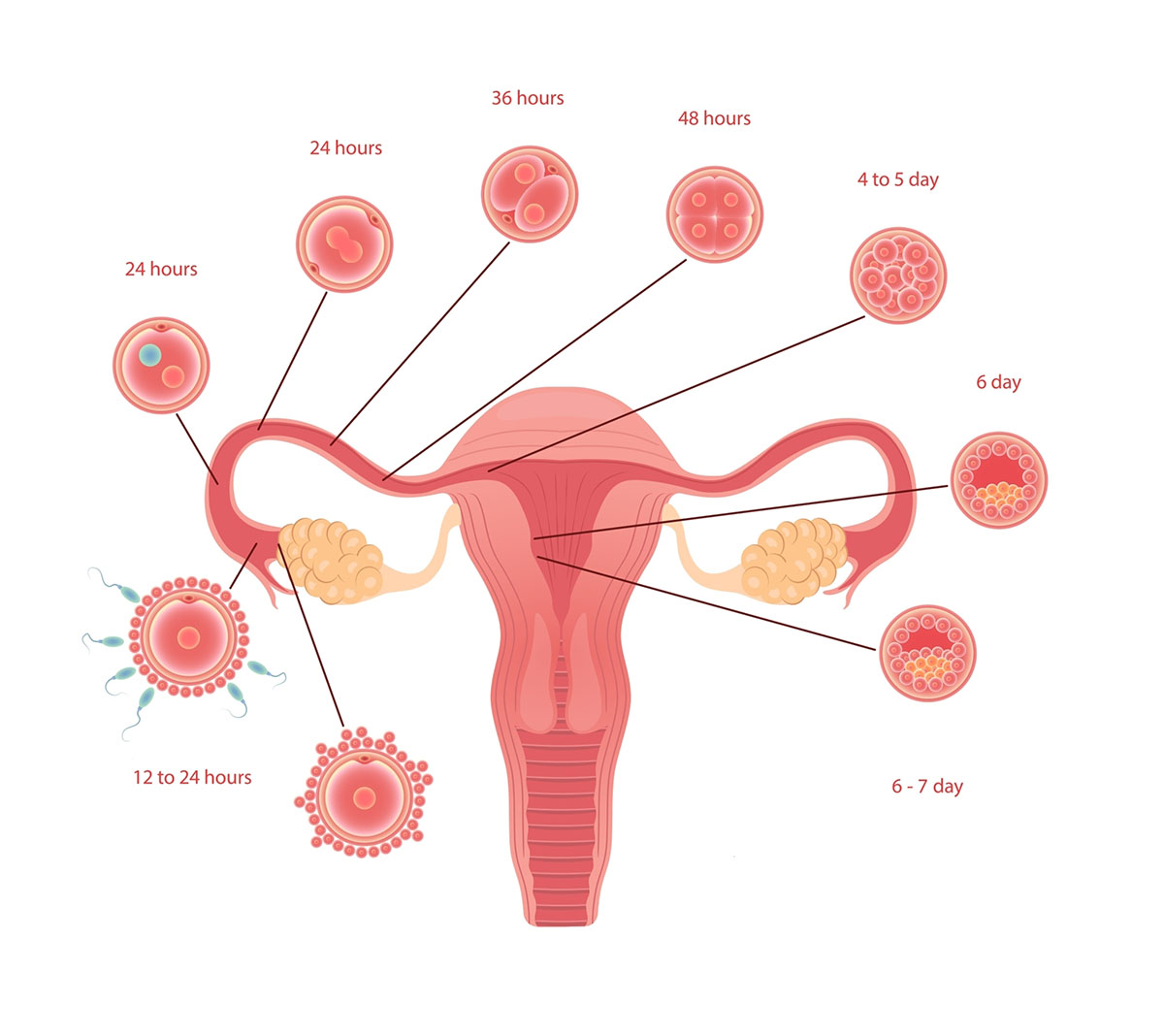
In the 1st week of pregnancy, a woman is not pregnant
As rare as it sounds, it is true. The reason for this statement is as follows. Properly and logically, a woman's pregnancy should begin at the moment when a woman's egg is fertilized by a man's sperm. However, the moment of fusion of these reproductive cells cannot be precisely determined, therefore the first day of pregnancy is counted as the first day of the last menstruation. This day can be precisely determined for every woman, and subsequently it is possible to determine the course of the weeks of pregnancy based on this data. Basically, the 1st week of pregnancy is the first week of the menstrual cycle.
Practically, if a woman finds out on the basis of a pregnancy test that she is pregnant, she is already approximately 3-4 weeks pregnant. The fact remains that the "baby" takes the form of a fertilized egg nestled in the womb. It is here that the production of the hCG hormone begins, which caused the pregnancy test to be positive.
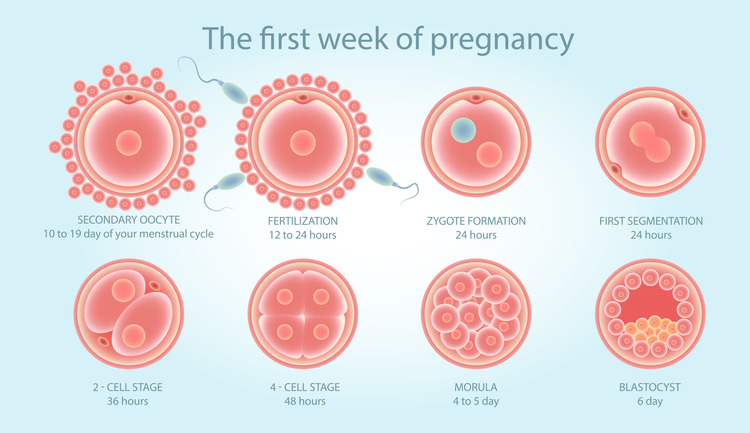
The course of the 1st week of pregnancy
Even if the pregnancy is counted from the 1st day of the last menstruation, the pregnancy is not yet present and cannot be confirmed in any way. In the 1st week of pregnancy, the woman's body prepares itself (by menstruation) so that the conditions in the uterus are hospitable for the fetus and the fertilized egg can implant. Pregnancy can only occur during ovulation. This is approximately day 12-16 after your period.
Fertilization of an egg by sperm can only take place for a limited time, on average only 12 to 48 hours after the mature egg has been released from the ovary (during ovulation). Subsequently, it is necessary for the egg to nest successfully. This process takes several days, therefore the woman is practically "not pregnant" during the first two weeks of pregnancy.
Pain in the 1st week of pregnancy
A woman is menstruating during this period, therefore menstrual cramps, bleeding, pains are present - headache, fatigue, swollen breasts or pain in the lumbar region. These symptoms are not a sign of pregnancy, but the preparation of the uterus for the possible reception of a fertilized egg. So these are traditional symptoms during regular menstruation.
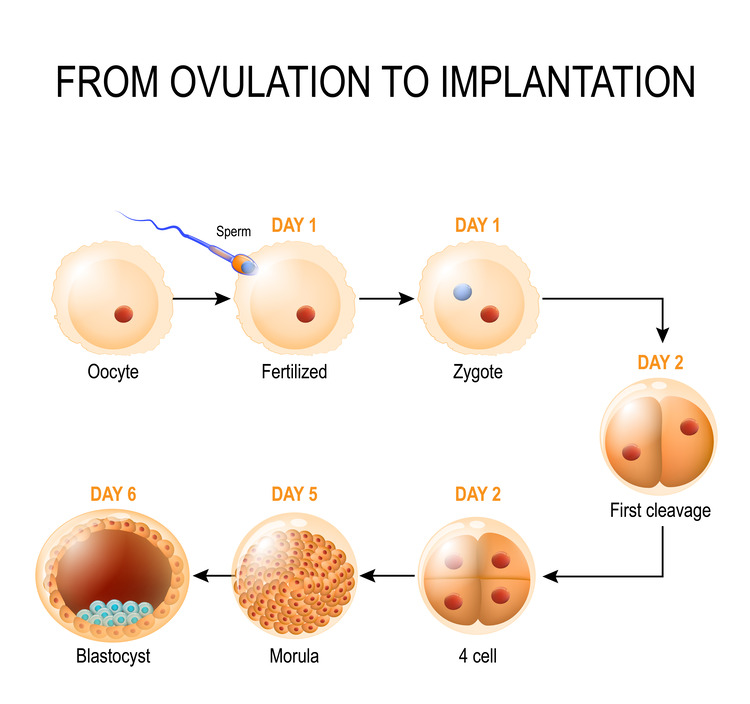
A positive pregnancy test is not the beginning of pregnancy
If you are one of those lucky women who just found out a positive result thanks to a pregnancy test, know that this is most likely a good sign. However, you will not know that in the 1st week of pregnancy. If there are two distinct lines on your test, you are probably 3-4 weeks pregnant. The egg implanted in the uterus and the body began to produce the pregnancy hormone hCG. This is also why, in principle, the doctor determines the 1st week of pregnancy backwards. Subsequently, the pregnancy is calculated in lunar months (one lunar month has 28 days) divided into I. (1st - 12th pregnancy week), II. (13. – 27. tt) and III. trimester (28.-40. tt).
The most frequent questions - FAQ
What does it mean if a woman is in the 1st week of pregnancy ? How is the baby? The 1st week of pregnancy is a rather misleading name, because at this stage of "pregnancy" a woman is not yet pregnant and has no way to find out. However, this is an important period precisely so that a successful pregnancy can occur. Methodically, a woman finds out about her pregnancy only when she is in the 3rd or 4th week. Are you interested in something about this topic? We will also be glad if you share your experience and knowledge. Join the discussion under the article.
Calculation of the week of pregnancy, how to do it?
Is it possible to get pregnant during menstruation?
What to do before pregnancy?
Gallery
Pridať komentár


